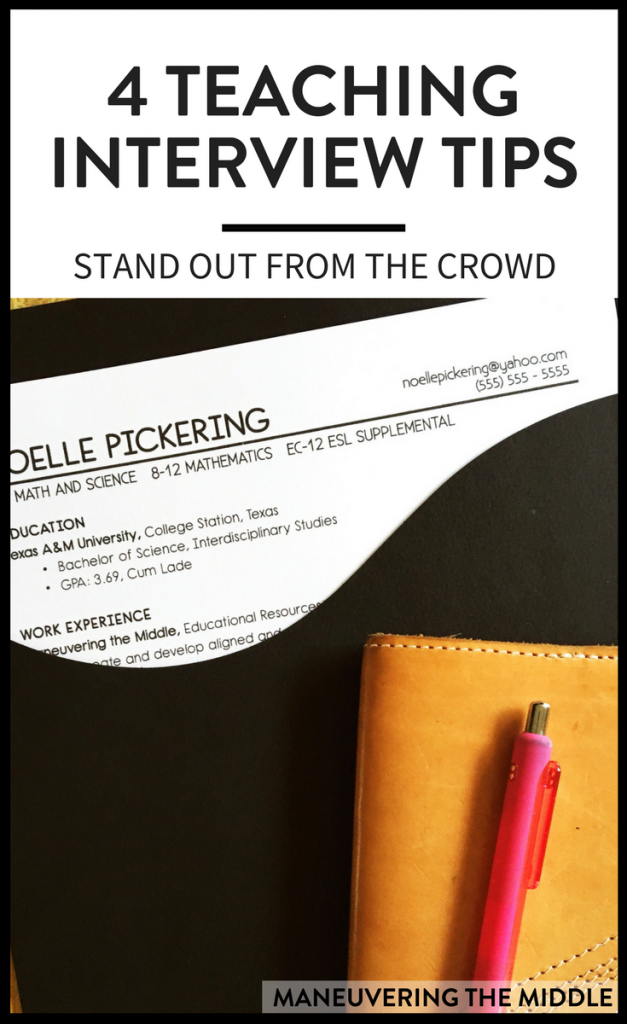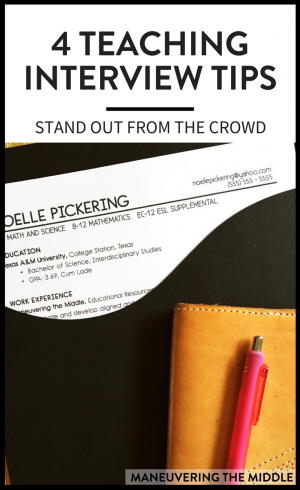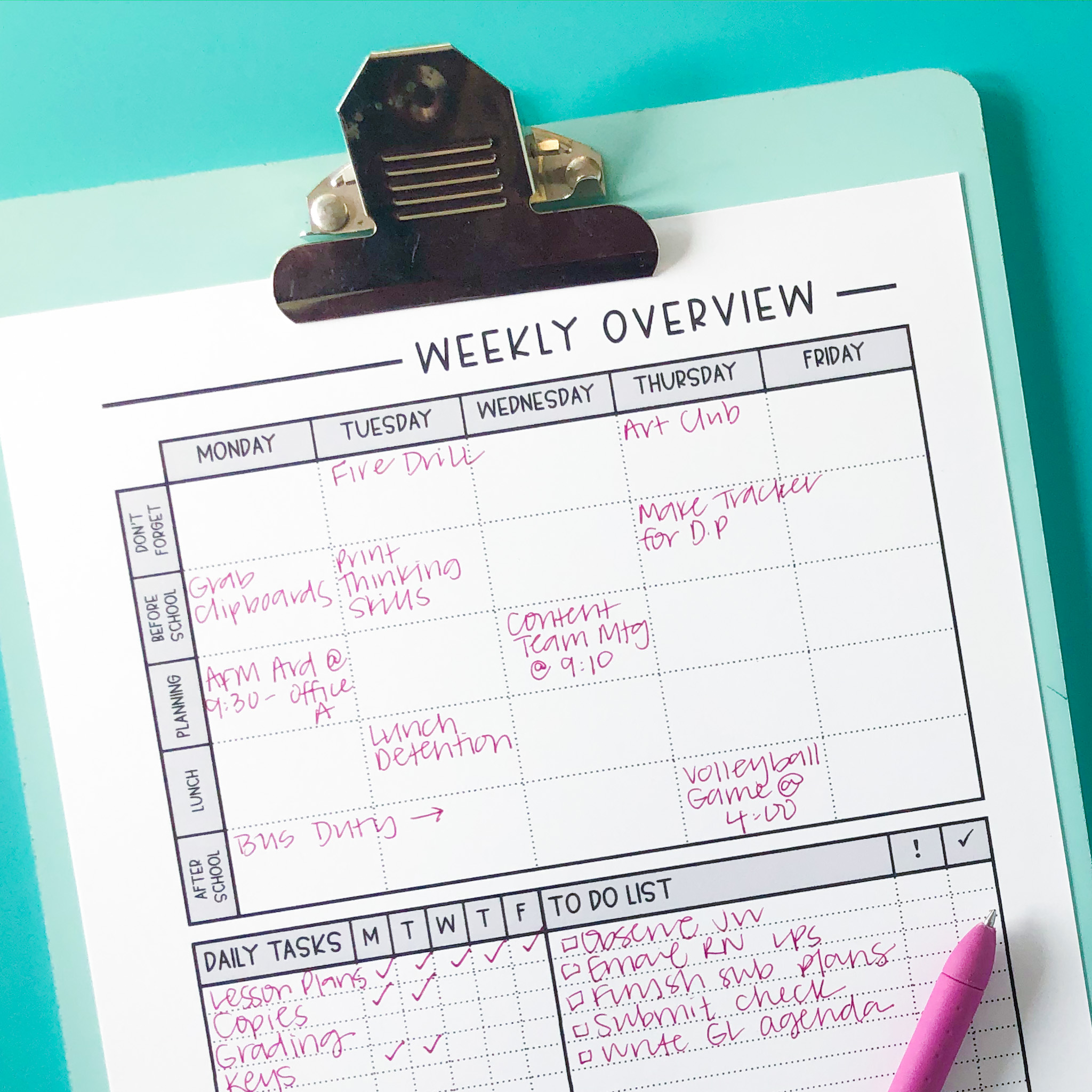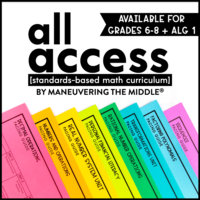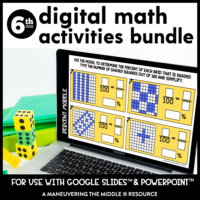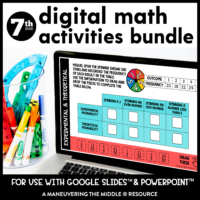When you start applying for jobs, I think everyone starts the Google search with “teaching interview questions” or “what questions are asked on a teaching interview?” There is nothing worse than attending an interview and feeling unprepared when asked a question. While it does help to anticipate the specific questions that might be asked, it is also helpful to consider your interview as a whole. Today, I am sharing four teaching interview tips that will help you stand out among other candidates.
Teaching Interview Tips and Best Practices
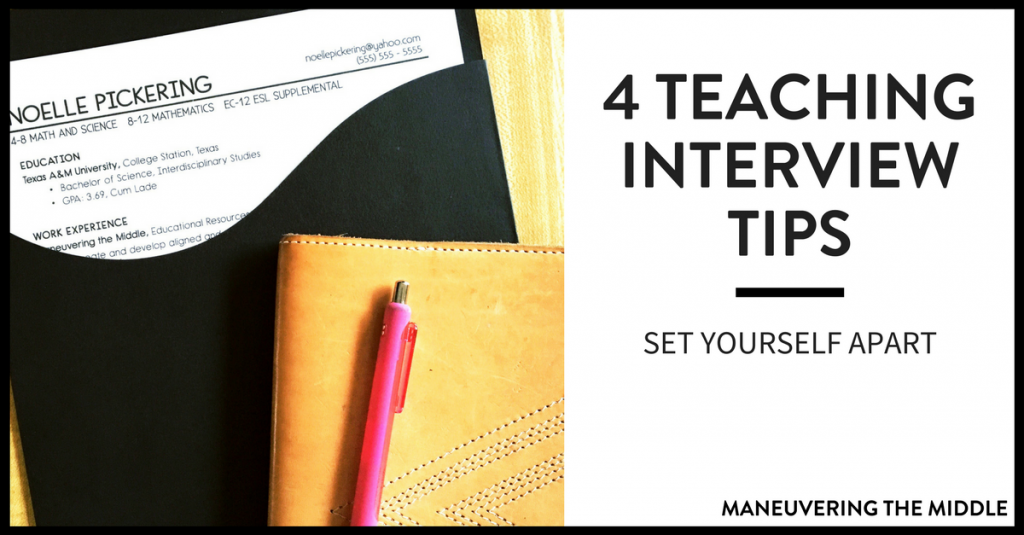
1. DEMONSTRATE PREPAREDNESS
What does it look like?
Preparedness is an all encompassing term to describe simple yet effective best practices for an interview.
- Dress professionally – You likely don’t need a suit, but a nice pair of slacks, a dress, and/or a professional top goes a long way.
- Do your research – Dig into the data of the school you are interviewing with by looking at their school-specific initiatives. Find out what unique programs they are offering and what goal they are trying to meet.
- Bring a sample lesson plan or student work – If you have teaching experience, then bring a lesson plan or lesson materials for something that you have planned and taught. If you are a new teacher, then consider writing up a lesson that you would be excited to teach. Be sure to include standards and student objectives. Did you implement an outstanding PBL at the end of the year? Bring a student sample to share with the committee.
- Know your data – While data is NOT a full picture of a teachers’ effectiveness, if you have great data, then show it off! Did your students perform well on a district benchmark? Bring the summary sheet.
Why does it matter?
The interviewer (or committee) is looking for someone who will take initiative. This person will see that one of their students is struggling and seek out options for assisting them, this person will look for the best lessons to convey a more difficult concept, and this person will take the initiative to be a contributing part of their team.
2. ANSWER THE QUESTION BEING ASKED
What does it look like?
This seems simple, but as you interview and begin telling stories, it is easy to get off topic or not fully answer the question. If you are unclear of what is being asked, then you might consider restating the question or asking for clarification. When answering, try to be specific to the question and provide specific examples.
Why does it matter?
These specific and clear responses are much more helpful and memorable than something generic or theoretical. When many candidates are being interviewed, you would be shocked as to how many say that their strength is being a perfectionist or that they want to be a teacher because they love students. When you are specific and can provide a short example, you set yourself apart from the other candidates.
3. CONSIDER YOUR NON-NEGOTIABLES
What does it look like?
Before going to an interview consider the type of school you would like to work at. What programs and values are most important to you? What type of leadership would you like to work under? Do your research and be prepared to ask questions so that you leave with a better understanding of the school’s values. Look around the hallways and pay attention to what you are seeing; there are countless non-verbals that are communicated. Do teachers look generally happy? Do students look generally happy? How do people talk to each other? Are the hallways structured? I always loved when a principal would give me a school tour because I was able to see the interactions of the staff, students, and the expectations of their teachers.
Why does it matter?
Remember that while you are interviewing for the job, you are going to be most successful in a place that is a good fit for you. If you are passionate about STEM, then working at a school that is focused on a different initiative might leave you frustrated. If you are set on being a 5th grade teacher, then consider if an 8th grade position is the best fit. There are always things that you will be able to move past, but in general know your non-negotiables.
4. DEMONSTRATE THAT YOU ARE TEACHABLE
What does it look like?
Being teachable is an incredible quality and can be conveyed in an interview through a few simple phrases.
- “I haven’t experienced that before, so I would be sure to ask about how the school handles situations like that…”
- “When I am uncertain, I am quick to ask for help…”
- “I really like when feedback is provided because it helps me to improve my craft of teaching…”
You might have a different opportunity to demonstrate that you are teachable, there is not a right or wrong phrase.
Why does it matter?
A principal would much rather someone not know and ask a question, than not know and make an assumption. Team members who are willing to learn, willing to ask for help, and willing to take feedback and make improvements are excellent members of a team and highly sought after. Sometimes in an interview, we feel the need to have the right answer to every question, but when we are unsure, an interview committee can typically see right through it.
What other teaching interview tips would you suggest? If you have participated in a committee interview, then what suggestions do you have for those interviewing?
